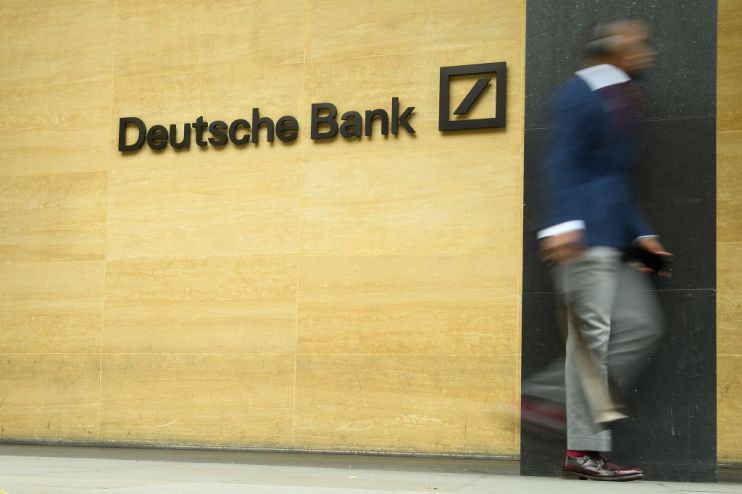Deutsche Bank flags cost cuts as investment bank slump lowers profit

Deutsche Bank on Wednesday posted a 27 per cent fall in second-quarter profit as investment banking revenue slumped and warned of the need for cost cuts even though higher interest rates fuelled gains at its retail division.
The German lender downgraded its outlook for the investment bank, saying it now expected revenues to be slightly lower in 2023, compared to a previous forecast for flat revenue, though it was slightly more optimistic for the broader bank’s full-year revenue potential.
The figures underscore broader trends in global banking, with investment banks struggling as deals are paused, while higher interest rates are a boon to other divisions.
U.S. banking giants this month reported lacklustre results for investment banking in the second quarter, although investors have been betting on revived dealmaking and initial public offerings as stock markets recover.
Deutsche CEO Christian Sewing in a memo to staff said “tough decisions” were needed on costs.
“We are operating in an environment with significantly rising prices, which is another reason why we must maintain rigid discipline when it comes to our costs,” he said.
The bank announced cuts to 800 mostly non-client facing roles in April and is also drawing up plans to cut 10 per cent of its 17,000 German retail jobs over the next few years, Reuters reported last month.
Deutsche faced a rise in non-operating costs in the quarter, partly as a result of higher litigation and severance charges.
The bank’s retail division became its biggest revenue generator during the quarter. Analysts expect the retail unit will also overtake the investment bank as the main revenue driver for the full year, overturning the investment bank’s pole position over the previous three years.
Investment banking revenue dropped 11 per cent during the quarter, better than an expected 16 per cent drop. A 25 per cent increase in revenues at the corporate bank slightly beat expectations and the retail division’s 11 per cent rise came in as forecast.
Deutsche Bank set out in 2019 to reduce dependence on its volatile investment bank and rely instead on more stable businesses that serve companies and retail customers as a way to restore profitability.
Chief Financial Officer James von Moltke said the shift to the retail bank as the largest breadwinner was “significant” because the perception of the lender had been dominated over years by the investment bank, and Deutsche was becoming more balanced.
Net profit attributable to shareholders was €763m, down from €1.1bn a year earlier but better than analyst expectations for profit of around €571m.
Provisions for bad loans nearly doubled from a year earlier to €401m amid a softening in some sectors as the economy stumbles.
Despite the profit drop, the earnings marked the bank’s 12th consecutive quarter of profit, a notable streak in the black after years of losses. Deutsche said on Tuesday it would undertake a €450m share buyback this year, up from €300m last year.
Deutsche, which ranks as one of the world’s most systematically important banks, is vulnerable to a slowing economy, high inflation and regulatory issues that have plagued it over the years, according to analysts.
Last week, the U.S. Federal Reserve said it had fined Deutsche and its U.S. affiliates $186m for failing to sufficiently address money laundering control problems and other shortcomings previously flagged by the U.S. central bank.
The Fed’s fine contributed to the higher litigation costs, as did a $75m settlement with victims of Jeffrey Epstein who accused the bank of facilitating the late financier’s sex trafficking.
Reuters – Tom Sims and Matthias Inverardi
